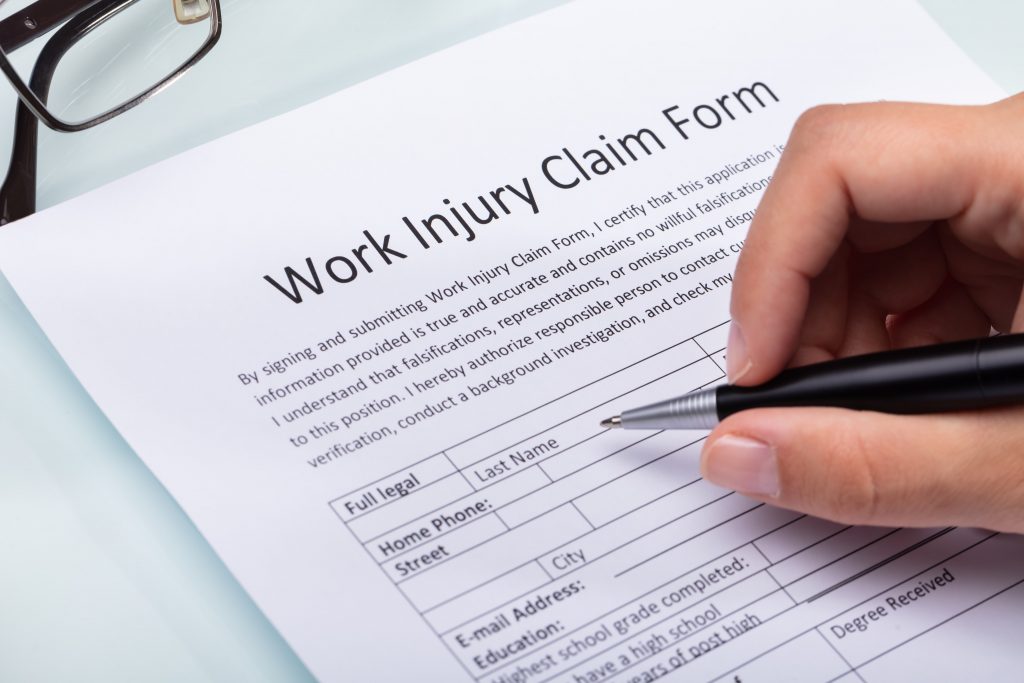
Dealing with a work injury can be highly complicated. You may have to face high medical expenses and be unable to work while recovering. However, workers’ compensation can be your lifeline during this stressful time in your life. These benefits can help pay for your short- and long-term medical expenses and cover your lost wages. However, obtaining them might be more complicated than you expect.
Not all workers are familiar with the process of filing a workers’ compensation claim. After all, nobody wants to get injured on the job. The process tends to be complicated, and any small error can cause a worker not to receive fair compensation or to have his or her claim denied altogether.
Because of this, you should be aware that there are certain mistakes you should avoid during the workers’ compensation process. Avoiding these common errors will increase your chances of getting the compensation you need to regain control of your life.
Table of Contents
1. Not working with a workers comp attorney
After a job-related injury, working with a Los Angeles workers’ compensation attorney, such as C&B Law Group, may be your best bet for receiving the benefits you need. An experienced attorney will be able to guide you every step of the way while you focus on your recovery.
Furthermore, the attorney will analyze the details of your injury to determine the value of your claim. Some lawyers can do this in a matter of minutes during the free initial consultation. Do not hesitate to contact a workers’ compensation attorney near you for more information about the process.
2. Not reporting the injury

img source: georgelislaw.com
Properly notifying your employer about your injury is crucial in the workers’ compensation process. Failure to do so could lead to obtaining benefits becoming extremely complicated.
On the other hand, your work injury may be minor, and you might not be sure if you should report the incident and seek medical attention. However, keep in mind that it might be a soft tissue injury that could worsen over time. Don’t risk your benefits just because you can’t feel the impact of your injury initially.
Also, you may fear that you could lose your job just for filing a workers’ compensation claim. Don’t worry; the law is on the workers’ side. Your employer cannot fire you just for exercising your right to seek compensation after an injury.
3. Failure to investigate after the injury
If your injuries allow, you should try to collect as much evidence as possible after the incident. You could take photos of the accident and your injuries, get the contact information of witnesses, etc.
Failure to do so could complicate matters later. For example, suppose your claim is denied because the insurer believes your injury wasn’t work-related. In that case, a first-hand witness could be crucial to getting the benefits you need.
4. Not getting medical attention

img source: verywellhealth.com
Your health is the most important thing. Not seeking medical attention after your work injury could lead to it getting much worse and could even affect your chances of receiving fair compensation for your case.
Besides treating your injuries, the doctor will also issue a medical report about your injuries. Later on, you may have to use it during your claim process to increase your chances of getting the compensation you need.
On the other hand, you should make sure to follow your doctor’s instructions at all times. Failure to do so could result in your claim being denied. If you disagree with your physician’s advice, consult with a Los Angeles workers’ compensation attorney to determine what you can do about it.
5. Filing your claim too late
Reporting your injury or filing your claim too late can significantly hurt your chances of obtaining benefits. Each state has statutes of limitation for filing workers’ compensation claims. For example, California workers have up to one year after their injury to file a workers’ compensation claim. On the other hand, workers will only have as many as 30 days to report their injury to their employer.
You won’t have time to waste after a work injury. If you are not sure what to do, consult with a local attorney.
6. Providing inaccurate information

img source: 112.international
When filling out workers’ compensation forms, you must make sure you provide accurate information about the accident that caused your injury. If the insurance company finds inconsistencies, your benefits could be at risk.
Moreover, you must also provide accurate information to your treating physician. Explain to the doctor what you are feeling in detail so that he or she can issue a valid medical report to help you during your claim.
7. Failing to get a second medical opinion
A common mistake many workers often make is thinking that they don’t have the right to request a second medical opinion. On the contrary, if you cannot choose your first treating physician, you should make sure you go to a doctor you trust for a second medical evaluation to corroborate your diagnosis. This is especially important if you disagree with your initial doctor’s assessment.
8. Returning to work too soon

img source: kansascityworkcomp.com
If you return to work too soon, you will certainly hurt your chances of getting proper compensation for your injuries. Some employers may offer you different jobs so that you can work while you recover. For example, suppose your job requires you to walk constantly. In that case, if you injure your leg, your employer may offer you a temporary in-office job during your recovery. However, accepting this position could mean that you will receive lower workers’ compensation payments.
In these cases, be sure to follow your doctor’s instructions and take as much time as necessary for your recovery.
9. Accepting a low settlement
Your employer’s insurance company may offer you a lower settlement after your injury than you actually need. Don’t be offended by this; it’s simply a tactic to save a few dollars on your claim. Just make sure you don’t accept a low initial offer and be patient during the negotiation.
Also, keep in mind that a workers’ compensation attorney can negotiate on your behalf to increase your chances of getting the maximum compensation available for your case.
10. Not appealing a denied claim

img source: dentalbilling.com
A denied claim isn’t the end of the road. On the contrary, you can (and should) appeal the decision to the Workers’ Compensation Board. However, this process tends to be even more complicated than filing your initial claim. As such, you should consider working with an experienced workers’ compensation attorney who may be able to help you reverse an unfavorable verdict.







